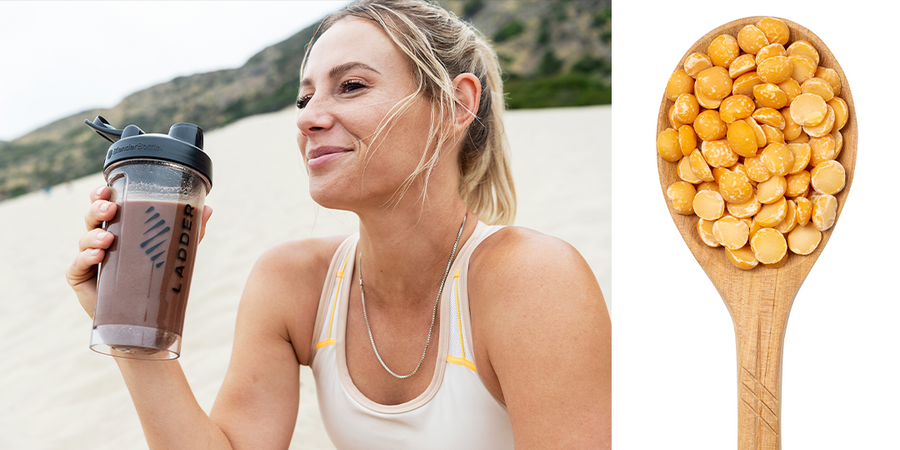
5 Reasons Why We Use Pea Protein in LADDER Plant Protein
By Jenessa Connor
When you hear "good source of protein," which foods come to mind? A boneless, skinless chicken breast? A medium-rare prime rib? A cup of Greek yogurt sprinkled with chopped almonds? What about yellow peas?
Maybe it's not your first thought, but pea protein is an excellent option for anyone who wants the benefits of protein supplementation but also prefers plant-based products. Learn why we use pea protein in LADDER Plant Protein — and how choosing a plant-based protein won't short-change your gains and goals.
Build muscle and improve recovery with the 21 grams of all-vegan protein in LADDER Plant Protein!
.
5 Nutritional Benefits of Pea Protein
The humble pea is actually a protein powerhouse, and that's just part of its appeal. Here are some of the nutritional benefits of pea protein.
1. Helps muscle repair and growth
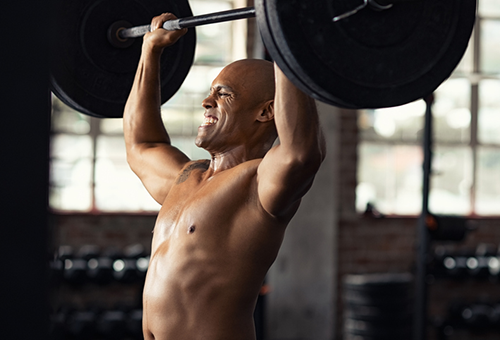
You likely know the basics of how muscles are made: Exercise (strength training, in particular) causes damage to the muscle tissue. In the process of their repair, muscles grow stronger and larger in size. In short, exercise is the stimulus, and adequate nutrition — specifically, protein — is key to the adaptation.
“Pea protein helps to build lean mass since it provides the building blocks — amino acids — with which the muscle can repair and rebuild after exercise," says Paul Falcone, senior scientist at LADDER. Sipping a pea protein shake or smoothie after your workout or between meals can help you meet your daily protein needs.*
LADDER Plant Protein utilizes pea protein as its primary protein source, delivering a whopping 21 grams of protein per serving. It also contains essential amino acids, so called because they aren't made by the body and must be provided by food. Those essential amino acids also include branched-chain amino acids (BCAAs).
2. Helps improve performance
Falcone makes the point that the benefits of consuming pea protein can be cumulative. With consistent fueling, as well as training and rest, you'll likely notice a meaningful difference on the field or in the gym. “Pea protein after exercise also helps support performance, because you can get stronger over time if you give your body what it needs to recover properly," Falcone says.*
3. Vegan-friendly and dairy-free
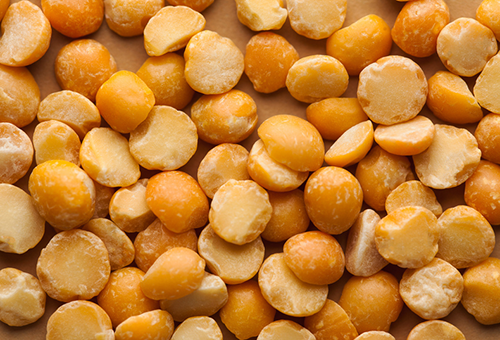
As noted above, incorporating a protein shake or smoothie into your routine can aid muscle recovery. But for people who follow a vegan or dairy-free diet, protein supplements that contain whey and casein (the majority of readily available powders and premade drinks) aren't an option. However, pea protein is completely plant-based, making it a comparable, dairy-free alternative that's also vegan-friendly.
4. Excellent source of iron
Iron is essential to maintaining healthy blood. However, it can be difficult to meet your daily intake requirements, especially if you follow a vegan or vegetarian diet. They exclude sources of the more bioavailable heme iron that are found in animal-based foods like meat, poultry, and seafood.
Peas and other legumes are naturally good sources of iron, which makes pea protein a worthy option for anyone looking to boost their iron intake. One serving of LADDER Plant Protein contains 4.5 mg of iron, which is around 25 percent of the recommended daily value.
5. It can help keep you satisfied
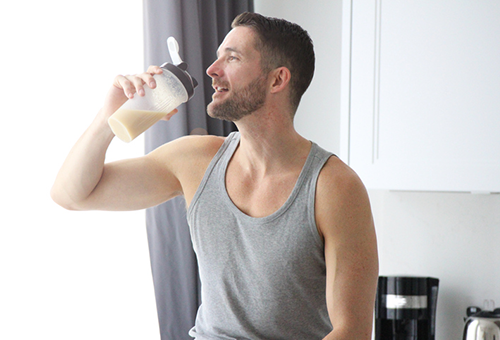
Looking to maintain or cut weight? The key is to find the right balance between feeling full and not exceeding your daily calorie needs. Research shows that consuming protein may help provide longer-lasting satiety, making between-meal snacking less appealing. And in comparing sources of protein, some studies find that pea protein can be just as effective at staving off hunger as other forms.*
.
Why LADDER Uses Pea Protein
Besides pea protein, there are other available sources for vegan protein powders, including soy and hemp. However, not all plant-based proteins are created the same. According to Falcone, LADDER's choice to utilize pea protein for its vegan protein blend is based on the unique chemical makeup of pea protein.
“We chose pea protein because it provides leucine (a BCAA) and a wide array of other essential amino acids in amounts that can help support recovery after exercise," he says. “Research indicates that leucine and essential amino acid content are extremely important when choosing protein sources for muscle-building and exercise performance."*
.
Does Pea Protein Work for Muscle Gain?
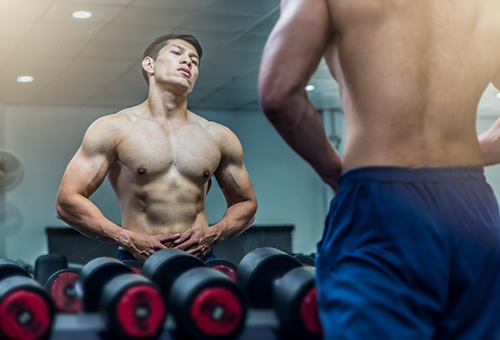
When paired with a consistent resistance-training routine and adequate rest, a healthy diet, and proper recovery, pea protein can help you gain muscle mass, strength, and power.
“Pea protein provides essential amino acids, which are necessary building blocks to help muscles rebuild and repair," Falcone says. “Leucine (one of the three BCAAs) is a particularly important essential amino acid, since it enhances the molecular signal for the muscle to rebuild, while also being a building block."
In fact, pea protein may be just as effective in aiding muscle gain as some of the most commonly used supplements on the market. Falcone notes a recent study at Lipscomb University in which researchers compared pea protein to whey protein, “an animal-based protein that is considered the gold standard for muscle building," he says.
“The young men and women in the study underwent eight weeks of a high-intensity functional training protocol. Both the pea and the whey protein produced similar outcomes on measures of strength and muscle mass, suggesting that pea may be as effective as whey in conjunction with a HIIT protocol."*
*These statements have not been evaluated by the Food and Drug Administration. This product is not intended to diagnose, treat, cure, or prevent any disease.



